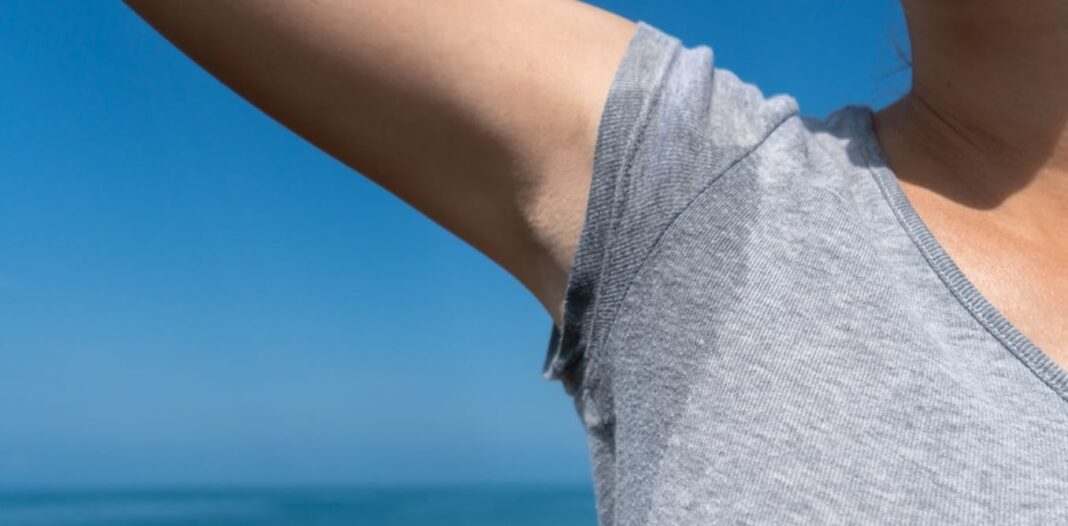Why Do Some People Sweat More Than Others?
Sweating is our body’s way of cooling down, a bit like an internal air conditioner. When our core temperature rises (because it’s hot outside, or you’re exercising), sweat glands all over our skin release a watery fluid. As that fluid evaporates, it takes heat with it, keeping us from overheating.
But sweating can vary from person to person. Some people might just get a little dewy under the arms, others feel like they could fill a swimming pool (maybe not that dramatic, but you get the idea).
So what’s a normal amount of sweat? And what’s too much?
Why Do Some People Sweat More than Others?
How much you sweat depends on a number of factors including:
* The average person sweats at the rate of 300 millilitres per hour (at 30°C and about 40% humidity). But as you can’t go around measuring the volume of your own sweat (or weighing it), doctors use another measure to gauge the impact of sweating.
* They ask whether sweating interferes with your daily life. Maybe you stop wearing certain clothes because of the sweat stains, or feel embarrassed so don’t go to social events or work.
* If so, this is a medical condition called hyperhidrosis which affects millions of people worldwide.
What Can I Do?
1. Antiperspirants
Make sure you’re buying antiperspirant and not deodorant. Antiperspirants, particularly ones with aluminum are your first line of defence and are formulated to reduce sweating. Deodorants only stop body odour.
A dermatologist usually gives the injections. But they’re only subsidised by Medicare in Australia for the armpits and if you have primary hyperhidrosis that hasn’t been controlled by the strongest antiperspirants.
2. Beat the Heat
This might seem obvious, but staying cool can make a big difference. That’s because you have less heat to lose, so the body makes less sweat.
3. Medication
Some medications can help regulate your sweating. Unfortunately some can also give you side effects such as a dry mouth, blurred vision, stomach pain or constipation. So talk to your doctor about what’s best for you.
4. Botulinum Toxin Injections
Botulinum toxin injections are not just used for cosmetic reasons. They have many applications in medicine, including blocking the nerves that control the sweat glands. They do this for many months.
5. Iontophoresis
This involves using a device that passes a weak electrical current through water to the skin to reducing sweating in the hands, feet or armpits. Scientists aren’t sure exactly how it works.
6. Surgery
There is a procedure to cut certain nerves to the hands that stop them sweating. This is highly effective but can cause sweating to occur elsewhere.
7. Microwave Therapy
This is a newer treatment that zaps your sweat glands to destroy them so they can’t work any more. It’s not super common yet, and it is quite painful. It’s available privately in a few centres.
Conclusion
If you’re someone who sweats excessively, it’s not just about using antiperspirant and deodorant. There are various treatments available, from medications to surgical procedures. It’s essential to talk to your doctor or dermatologist to determine the best course of action for your specific situation.
Frequently Asked Questions
Q: How do I know if I have hyperhidrosis?
A: You may have hyperhidrosis if your sweating is excessive and interferes with your daily life.
Q: What are the causes of hyperhidrosis?
A: There are many potential causes of hyperhidrosis, including an overactive thyroid, fever, menopause, and genetics.
Q: Can I get insurance coverage for hyperhidrosis treatments?
A: Depending on the treatment and your insurance provider, you may be eligible for coverage.
Q: Are there any home remedies for hyperhidrosis?
A: While there are no proven home remedies for hyperhidrosis, you can try certain lifestyle changes, such as avoiding hot showers and wearing loose, breathable clothing.





